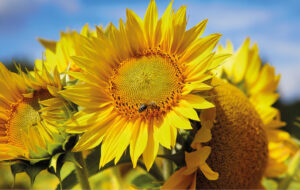
Sunflower prices increased last week and fluctuated in the range of 25-27.5 thsd UAH/t CPT, due to the activity of purchases and the amount of supply of raw materials on the market, according to the analytical cooperative “Start”, created within the framework of the All-Ukrainian Agrarian Council. “A number of companies reported fairly good receipts of the oilseed, while some small enterprises suspended operations until the price situation on the market improved,” the analysts said. According to their information, prices for sunflower oil in the domestic market continued to grow, while prices for sunflower meal continued to decline significantly. Processors, trying to balance in such a situation, in some cases refused to sell the meal on the domestic market, while oil was offered at rather high prices, but left the market, they stated.
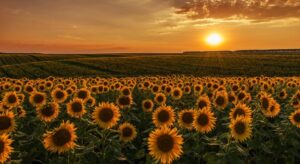
In Ukraine, sunflower prices have approached the historical price maximum of 25-27 thousand UAH/ton of CPT, according to APK-Inform news agency.
“There are already the first small enterprises that have switched from sunflower processing to alternative crops due to high prices, but other oilseeds are not so good,” the analysts said, adding that many processors report the margin is almost non-existent.
Large plants can afford to work in the red for some time, while small processing companies will either have to stop working until the price situation improves or switch to processing other oilseeds, APK-Inform stated.
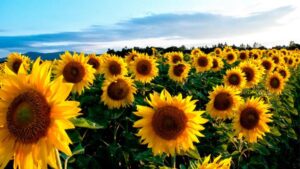
The prices of sunflower seeds in Ukraine increased significantly last week, reaching the highest level since the end of May 2021, with the official purchase prices of processors reaching 22.5-24.5 thsd UAH/ton CPT, APK-Inform news agency reported.
“The companies reported that the supply of the oilseed slightly increased, but still remained insufficient. Therefore, those who needed urgent replenishment of stocks to fulfill the contractual obligations for oilseeds raised the prices more actively (up to +1000 UAH/ton) compared to the week before and were ready to pay extra for large volumes and oil content,” the analysts said.
Experts emphasized that the growth of prices for raw materials is facilitated by the increase in the cost of sunflower oil on foreign markets. At the same time, more and more crushers report that the profitability of processing is low or almost non-existent.
Last week, the demand prices for sunflower oil in the ports of Ukraine increased by 20-30 USD/ton and reached the highest level since January 2023 – 1020-1025 USD/ton CPT port.
APK-Inform reminded that the historical price maximum for sunflower oil in Ukraine was recorded in March 2021 – 25.5-27.4 thsd UAH/ton CPT.
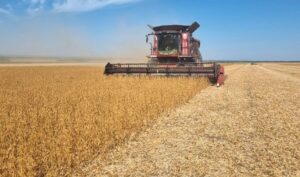
Agrotrade has completed threshing sunflower and soybeans in the fields of Poltava, Chernihiv, Kharkiv and Sumy regions, which covered 12.4 thou hectares and 8.1 thou hectares, respectively, the company’s press service reports.
According to the report, despite the abnormal heat during the 2024 season, the yield of sunflower and soybeans is quite high.
“We got high sunflower yields for these conditions in Chernihiv and Sumy regions. In Kharkiv region, it was much more difficult to work because there was no precipitation at all. In addition, this is a ‘conditionally safe’ area, so we were limited in our ability to conduct some agricultural operations. The yields depended on the cultivation technology: on the fields where we sowed with a long rotation and an optimal predecessor, they were high, and, conversely, with a short rotation and a poor predecessor, the yields were lower. At the same time, soybeans were affected by drought in all enterprises,” said Oleksandr Ovsyanyk, Director of Agrotrade’s Agricultural Department.
According to him, due to the hot summer, the grain arrives at the elevators completely dry and does not need to be processed. As a result, agricultural producers have significantly reduced drying costs, which improves the economic component of their work.
The agricultural holding has no plans to change its cultivation technology to take into account the drought. However, they intend to consider investing in moisture-saving technologies. Agrotrade Group is a vertically integrated holding company with a full agro-industrial cycle (production, processing, storage and trade of agricultural products). It cultivates over 70 thousand hectares of land in Chernihiv, Sumy, Poltava and Kharkiv regions.
Its main crops are sunflower, corn, winter wheat, soybeans and rapeseed. It has its own network of elevators with a simultaneous storage capacity of 570 thousand tons. The group also produces hybrid seeds of corn and sunflower, barley, and winter wheat. In 2014, a seed plant with a capacity of 20 thousand tons of seeds per year was built on the basis of Kolos seed farm (Kharkiv region). In 2018, Agrotrade launched its own brand Agroseeds on the market.
Vsevolod Kozhemiako is the founder and CEO of Agrotrade.
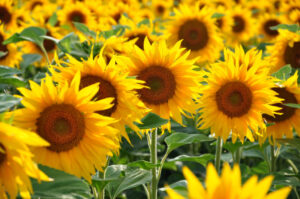
The deficit in the sunflower market in Ukraine continues to push prices up, due to the decrease in production of this oilseed compared to last year, Ukrainian plants are experiencing a shortage of raw materials, according to the analytical cooperative “Start”, created within the framework of the All-Ukrainian Agrarian Council (AAC).
“The price of sunflower has already exceeded 23 thousand UAH/t, and according to the seasonal model, the average price may reach 24 thousand-24.5 thousand UAH/t at the end of October. This is due to the large number of contracts for oil due to the shortage of raw materials,” the analysts said, adding that the crushing plants failed to accumulate stocks, as it was before.
According to the experts, most of the oil processing plants buy sunflower and immediately send it for processing. Previously, processors had stocks for October-November, but now many companies do not have enough to cover even the current month. This leads to higher prices and fierce competition between plants trying to buy the required amount of sunflower.
Pusk predicts that given the current trends and seasonality in the market, we can expect new record prices that may exceed the historical highs recorded in 2020.
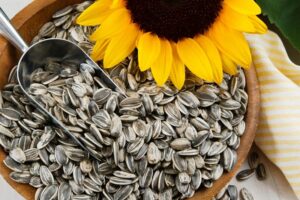
The agricultural holding Continental Farmers Group has completed threshing sunflower from 13 thousand hectares with a yield higher than planned and oil content of more than 50%, the press service of the agricultural holding reports.
“Although high temperatures during the flowering period somewhat reduced the expected potential of the crop in some regions, Continental still notes good quality of the harvested sunflower, its high oil content of more than 50% and yields above the target,” the statement said.
Currently, the agroholding has focused all its efforts on threshing soybeans, for which 46.5 thou hectares were allocated in the 2024 season. Both own and hired machinery are used to harvest the crop.
“We have started threshing corn only on a few areas where the moisture content is already at the basic level. This accelerated maturation of the crop was caused by a hot and dry August. However, we plan to start intensive corn harvesting in the second half of October in most fields. In total, we have 28.5 thou hectares of the crop to thresh,” explained Konstantin Shityuk, COO of Continental.
He noted that October will be the busiest period of the harvesting campaign for the agricultural holding. Weather conditions at the beginning of the month will largely determine whether the harvest season will be successful. Continental expects to complete the main field work on schedule and remains optimistic about crop yields.
The harvesting of sugar beet and potatoes continues on Continental’s fields, which this season occupy 3.2 thousand hectares and 1.8 thousand hectares respectively. For both crops, farmers are getting good intermediate results, with favorable weather conditions providing sufficient soil moisture for high-quality harvesting with minimal damage.
Mriya Agroholding and CFG, united under the name Continental Farmers Group, have been operating as a single business since November 2018, when Mriya entered into an agreement with international investor Salic UK to sell its assets.
Salic was founded in 2012. Its sole shareholder is the Saudi Arabian Public Investment Fund, which invests in agricultural and livestock production.